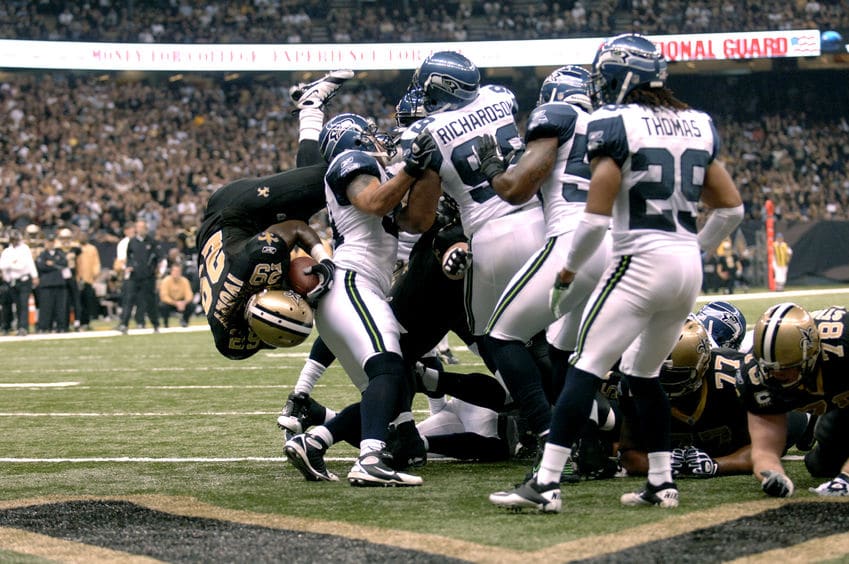What We Can Learn From Delvin Breaux

The current issue with Delvin Breaux, cornerback for the New Orleans Saints, is important for all of us, not just sports fans.
Why? Well, in short, team physicians misdiagnosed Delvin Breaux with an ankle bruise. A bruise that never fully healed and began to affect his performance. On the brink of being traded, he sought out a second medical opinion from a surgeon unaffiliated with his team. It was at this point he discovered he had a fracture, explaining why his ‘bruise’ was not healing in a timely fashion. Following this, the Saints promptly fired the team physicians.
Delvin Breaux’s experience is part of a bigger problem.
There are a vast number of conflicts of interest present in medicine today. Most patients are completely unaware that they have no control or choice in their care. Delvin Breaux’s team physicians obviously had a conflict between keeping the team happy but also keeping the players on the field.
 Team physicians can’t sideline every player for every ache and pain.
Team physicians can’t sideline every player for every ache and pain.
In the real world, conflicts arise in referral patterns and treatment choices. If a patient goes to see an orthopedic surgeon in a large group or hospital-based practice, they have automatically entered themselves into a narrow network of care. This eliminates the possibility of choice. If the first physician decides the problem requires different expertise, they’ll refer that patient to the hospital system or group. By doing this, patients are not informed about other options available to them. If that orthopedic surgeon decides further imaging may be necessary, they might order an MRI or CT scan. These studies may not be ordered if that surgeon is part of an Accountable Care Organization (ACO).
Accountable Care Organizations pay doctors and hospitals to limit care.
Each patient is designated a bucket of money by the insurance company per year. However, this money is shared with the physicians and hospitals in the ACO if there is money left at the end of the year. Doctors and hospitals are incentivized to ration the patient’s care. Fewer MRI studies are ordered, needed or not, as patient referrals to specialists may never happen. This conflict of interest is never revealed to the patient either. If the surgeon decides that surgery is necessary, there are even more conflicts. Perhaps the least discussed is the choice of implants or orthopedic hardware. Even if the quality or outcomes of more expensive implants are better for the patient, many facilities and board members will pressure surgeons to use cheap implants.
Medical facilities make more money when they use cheap implants.
There is a lot of impressive technology and products available to improve the quality of care. However, these are also more expensive than technology from 20 years ago. Again, the patients have no idea about this and certainly have no choice in the matter. Total joint arthroplasty is an excellent example of this problem. Many hospitals now sign an exclusive contract with a single manufacturer that agrees to a rock-bottom price. Surgeons at that facility are then forced to use that company’s implants even if they believe another to be superior. As this becomes standard practice for hospitals or facilities, patients become excluded from the discussion of what implants they put in their own body.
One of the worst conflicts regarding treatment and care stems from the insurance companies themselves.
Physicians are often forced to use a medication they do not believe in or know will work because the insurance company signed a contract with a pharmacy benefit manager involving a rebate with a different drug maker’s products. The patient and the care is secondary to cost. Insurance companies often dictate when an MRI is allowed to happen. Even in cases when an MRI is necessary, some insurance companies have a blanket policy to wait six weeks before allowing an MRI.
There have been many instances of a patient coming to our clinic with an injury that requires bracing, but we cannot get the brace because their insurance company requires prior authorization and the process can take 2-3 days. What has happened to Delvin Breaux is not good, but it is also not rare. Frequently, conflicts alter the care that people receive. As an industry, we must work to avoid these barriers moving forward. Networks of care cannot remain so narrow, as we should aim to give patients more choices and lessen the burden of treatment options and rationing put on physicians.
It’s time to start caring about care again.
—





